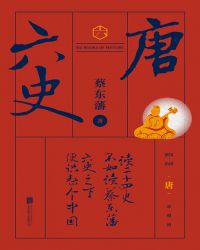LETTER LXXVII
您可以在百度里搜索“Pamela — Volume 2 艾草文学(www.321553.xyz)”查找最新章节!
LETTER LXXVII
From Mrs. B. to Lady Davers.
MY DEAREST LADY,
Mr. B. came back from Bedfordshire to his time. Every thing being in readiness, we set out with my baby, and his nurse. Mrs. Jervis, when every thing in London is settled by her direction, goes to Bedfordshire.
We were met by my father and mother in a chaise and pair, which your kind brother had presented to them unknown to me, that they might often take the air together, and go to church in it (which is at some distance) on Sundays. The driver is clothed in a good brown cloth suit, but no livery; for that my parents could not have borne, as Mr. B.'s goodness made him consider.
Your ladyship must needs think, how we were all overjoyed at this meeting: for my own part I cannot express how much I was transported when we arrived at the farm-house, to see all I delighted in, upon one happy spot together.
Mr. B. is much pleased with the alterations here: and it is a sweet, rural, and convenient place.
We were welcomed into these parts by the bells, and by the minister, and people of most note; and were at church together on Sunday.
Mr. B. is to set out on Tuesday for Tunbridge, with my papers. A happy issue, attend that affair, I pray God! He has given me the following particulars of it, to the time of my trial, beginning at the masquerade.
He says, that at the masquerade, when, pleased with the fair Nun's shape, air and voice, he had followed her to a corner most unobserved, she said in Italian, "Why are my retirements invaded, audacious Spaniard?"—"Because, my dear Nun, I hope you would have it so."
"I can no otherwise," returned she, "strike dead thy bold presumption, than to shew thee my scorn and anger thus!"—"And she unmasking surprised me," said Mr. B., "with a face as beautiful, but not so soft as my Pamela's."—"And I," said Mr. B., "to shew I can defy your resentment, will shew you a countenance as intrepid as yours is lovely." And so he drew aside his mask too.
He says, he observed his fair Nun to be followed wherever she went, by a mask habited like Testimony in Sir Courtly Nice, whose attention was fixed upon her and him; and he doubted not, that it was Mr. Turner. So he and the fair Nun took different ways, and he joined me and Miss Darnford, and found me engaged as I before related to your ladyship, and his Nun at his elbow unexpected.
That afterwards as he was engaged in French with a lady who had the dress of an Indian Princess, and the mask of an Ethiopian, his fair Nun said, in broken Spanish, "Art thou at all complexions?—By St. Ignatius, I believe thou'rt a rover!"
"I am trying," replied he in Italian, "whether I can meet with any lady comparable to my lovely Nun."
"And what is the result?"—"Not one: no not one."—"I wish you could not help being in earnest," said she; and slid from him.
He engaged her next at the sideboard, drinking under her veil a glass of Champaign. "You know, Pamela," said he, "there never was a sweeter mouth in the world than the Countess's except your own." She drew away the glass, as if unobserved by any body, to shew me the lower part of her face.
"I cannot say, but I was struck with her charming manner, and an unreservedness of air and behaviour, that I had not before seen so becoming. The place, and the freedom of conversation and deportment allowed there, gave her great advantages in my eye, although her habit required, as I thought, a little more gravity and circumspection: and I could not tell how to resist a secret pride and vanity, which is but too natural to both sexes, when they are taken notice of by persons so worthy of regard.
"Naturally fond of every thing that carried the face of an intrigue, I longed to know who this charming Nun was. And next time I engaged her, 'My good sister,' said I, 'how happy should I be, if I might be admitted to a conversation with you at your grate!'
"'Answer me,' said she, 'thou bold Spaniard,' (for that was a name she seemed fond of, which gave me to imagine, that boldness was a qualification she was not displeased with. 'Tis not unusual with our vain sex," observed he, "to construe even reproaches to our advantage,") 'is the lady here, whose shackles thou wearest?'—'Do I look like a man shackled, my fairest Nun?'—'No—no! not much like such an one. But I fancy thy wife is either a Widow or a Quaker.'—'Neither,' replied I, taking, by equivocation, her question literally.
"'And art thou not a married wretch? Answer me quickly!—We are observed.'—'No,' said I.—'Swear to me, thou art not.'—'By St. Ignatius, then;' for, my dear, I was no wretch, you know.—'Enough!' said she, and slid away; and the Fanatic would fain have engaged her, but she avoided him as industriously.
"Before I was aware, she was at my elbow, and, in Italian, said, 'That fair Quaker, yonder, is the wit of the assemblée; her eyes seem always directed to thy motions; and her person shews some intimacies have passed with somebody; is it with thee?'—'It would be my glory if it was,' said I, 'were her face answerable to her person.'—'Is it not?'—'I long to know,'" replied Mr. B.—"I am glad thou dost not."—"I am glad to hear my fair Nun say that."—"Dost thou," said she, "hate shackles? Or is it, that thy hour is not yet come?"
"I wish," replied he, "this be not the hour, the very hour!" pretending (naughty gentleman!—What ways these men have!) to sigh.
She went again to the side-board, and put her handkerchief upon it. Mr. B. followed, and observed all her motions. She drank a glass of lemonade, as he of Burgundy; and a person in a domino, supposed to be the King, passing by, took up every one's attention but Mr. B.'s who eyed her handkerchief, not doubting but she laid it there on purpose to forget to take it up. Accordingly she left it there; and slipping by him, he, unobserved, as he believes, put it in his pocket, and at the corner found the cover of a letter—"To the Right Honourable the Countess Dowager of ——"
That after this, the fair Nun was so shy, so reserved, and seemed so studiously to avoid him, that he had no opportunity to return her handkerchief; and the Fanatic observing how she shunned him, said, in French, "What, Monsieur, have you done to your Nun?"
"I found her to be a very coquette; and told her so; and she is offended."
"How could you affront a lady," replied he, "with such a charming face?
"By that I had reason to think," said Mr. B., "that he had seen her unmask; and I said, 'It becomes not any character, but that you wear, to pry into the secrets of others, in order to make ill-natured remarks, and perhaps to take ungentlemanlike advantages.'"
"No man should make that observation," returned he, "whose views would bear prying into."
"I was nettled," said Mr. B., "at this warm retort, and drew aside my mask: 'Nor would any man, who wore not a mask, tell me so!'
"He took not the challenge, and slid from me, and I saw him no more that night."
"So!" thought I, "another instance this might have been of the glorious consequences of masquerading." O my lady, these masquerades are abominable things!
The King, they said, met with a free speaker that night: in truth, I was not very sorry for it; for if monarchs will lay aside their sovereign distinctions, and mingle thus in masquerade with the worst as well as the highest (I cannot say best) of their subjects, let 'em take the consequence. Perhaps they might have a chance to hear more truth here than in their palaces—the only good that possibly can accrue from them—that is to say, if they made a good use of it when they heard it. For you see, my monarch, though he told the truth, as it happened, received the hint with more resentment than thankfulness!—So, 'tis too likely did the monarch of us both.
And now, my lady, you need not doubt, that so polite a gentleman would find an opportunity to return the Nun her handkerchief!—To be sure he would: for what man of honour would rob a lady of any part of her apparel? And should he, that wanted to steal a heart content himself with a handkerchief?—No no, that was not to be expected. So, what does he do, but resolve, the very next day, after dinner, to pursue this affair: accordingly, the poor Quaker little thinking of the matter, away goes her naughty Spaniard, to find out his Nun at her grate, or in her parlour rather.
He asks for the Countess. Is admitted into the outward parlour—her woman comes down; requires his name and business. His name he mentioned not. His business was, to restore into her lady's own hands, something she had dropt the night before.—Was desired to wait.
I should have said, that he was dressed very richly—having no design at all to make conquests; no, not he!—O this wicked love of intrigue!—A kind of olive-coloured velvet, and fine brocaded waistcoat. I said, when he took leave of me, "You're a charming Mr. B.," and saluted him, more pressingly than he returned it; but little did I think, when I plaited so smooth his rich laced ruffles, and bosom, where he was going, or what he had in his plotting heart. He went in his own chariot, that he did: so that he had no design to conceal who he was—But intrigue, a new conquest, vanity, pride!—O these men!—They had need talk of ladies!—But it is half our own fault, indeed it is, to encourage their vanity.
Well, Madam, he waited till his stateliness was moved to send up again, that he would wait on her ladyship some other time. So down she came, dressed most richly, jewels in her breast, and in her hair, and ears—But with a very reserved and stately air. He approached her—Methinks I see him, dear saucy gentleman. You know, Madam, what a noble manner of address he has.
He took the handkerchief from his bosom with an air; and kissing it, presented it to her, saying, "This happy estray, thus restored, begs leave, by me, to acknowledge its lovely owner!"
"What mean you, Sir?—Who are you, Sir?—What mean you?"
"Your ladyship will excuse me: but I am incapable of meaning any thing but what is honourable."—(No, to be sure)—"This, Madam, you left last night, when the domino took up every one's attention but mine, which was much better engaged; and I take the liberty to restore it to you."
She turned to the mark; a coronet at one corner, "'Tis true, Sir, I see now it is one of mine: but such a trifle was not worthy of being brought by such a gentleman as you seem to be; nor of my trouble to receive it in person. Your servant, Sir, might have delivered the bagatelle to mine."—"Nothing should be called so that belongs to the Countess of ——"—"She was no Countess, Sir, that dropt that handkerchief, and a gentleman would not attempt to penetrate, unbecomingly, through the disguises a lady thinks proper to assume; especially at such a place where every enquiry should begin and end."
This, Madam, from a lady, who had unmasked—because she would not be known!—Very pretty, indeed!—Oh! these slight cobweb airs of modesty! so easily seen through. Hence such advantages against us are taken by the men. She had looked out of her window, and seen no arms quartered with his own; for you know, my lady, I would never permit any to be procured for me: so, she doubted not, it seems, but he was an unmarried gentleman, as he had intimated to her the night before. He told her it was impossible, after having seen the finest lady in the world, not to wish to see her again; and that he hoped he did not, unbecomingly, break through her ladyship's reserves: nor had he made any enquiries, either on the spot, or off it; having had a much better direction by accident.
"As how, Sir?" said she, as he told me, with so bewitching an air, between attentive and pleasant, that, bold gentleman, forgetting all manner of distance, so early too! he clasped his arms around her waist, and saluted her, struggling with anger and indignation, he says; but I think little of that!
"Whence this insolence? How, now, Sir! Begone!" were her words, and she rung the bell; but he set his back against the door—(I never heard such boldness in my life, Madam!)—till she would forgive him. And, it is plain, she was not so angry as she pretended: for her woman coming, she was calmer;—"Nelthorpe," said she, "fetch my snuff box, with the lavender in it."
Her woman went; and then she said, "You told me, Sir, last night, of your intrepidness: I think you are the boldest man I ever met with: but, Sir, surely you ought to know, that you are not now in the Haymarket."
I think, truly, Madam, the lady might have saved herself that speech: for, upon my word, they neither of them wore masks—Though they ought to have put on one of blushes—I am sure I do for them, while I am writing. Her irresistible loveliness served for an excuse, that she could not disapprove from a man she disliked not: and his irresistible—may I say, assurance, Madam?—found too ready an excuse.
"Well, but, Sir," said I, "pray, when her ladyship was made acquainted that you were a married gentleman, how then?—Pray, did she find it out, or did you tell her?"—"Patience, my dear!"—"Well pray, Sir, go on.—What was next?"
"Why, next, I put on a more respectful and tender air: I would have taken her hand indeed, but she would not permit it; and when she saw I would not go till her lavender snuff came down (for so I told her, and her woman was not in haste), she seated herself, and I sat by her, and began to talk about a charming lady I saw the night before, after parting with her ladyship, but not equal by any means to her: and I was confident this would engage her attention; for I never knew the lady who thought herself handsome, that was not taken by this topic. Flattery and admiration, Pamela, are the two principal engines by which our sex make their first approaches to yours; and if you listen to us, we are sure, either by the sap or the mine, to succeed, and blow you up when ever we please, if we do but take care to suit ourselves to your particular foibles; or, to carry on the metaphor, point our batteries to your weak side—for the strongest fortresses, my dear, are weaker in one place than another."—"A fine thing, Sir," said I, "to be so learned a gentleman!"—"I wish, however," thought I, "you had always come honestly by your knowledge."
"When the lavender snuff came down, we were engaged in an agreeable disputation, which I had raised on purpose to excite her opposition, she having all the advantage in it; and in order to my giving it up, when she was intent upon it, as a mark of my consideration for her."
"I the less wonder, Sir," said I, "at your boldness (pardon the word!) with such a lady, in your first visit, because of her freedoms, when masked, her unmasking, and her handkerchief, and letter cover. To be sure, the lady, when she saw, next day, such a fine gentleman and handsome equipage, had little reason, after her other freedoms, to be so very nice with you as to decline an ensnaring conversation, calculated on purpose to engage her attention, and to lengthen out your visit. But did she not ask you who you were?"
"Her servants did of mine. And her woman (for I knew all afterwards, when we were better acquainted), whispered her lady, that I was Mr. B. of Bedfordshire; and had an immense estate, to which they were so kind as to add two or three thousand pounds a year, out of pure good will to me: I thank them."
"But pray, dear Sir, what had you in view in all this? Did you intend to carry this matter, at first, as far as ever you could?"—"I had, at first, my dear, no view, but such as pride and vanity suggested to me. I was carried away by inconsideration, and the love of intrigue, without even thinking about the consequences. The lady, I observed, had abundance of fine qualities. I thought I could converse with her, on a very agreeable foot, and her honour I knew, at any time, would preserve me mine, if ever I should find it in danger; and, in my soul, I preferred my Pamela to all the ladies on earth, and questioned not, but that, and your virtue, would be another barrier to my fidelity.
"In a word, therefore, pride, vanity, thoughtlessness, were my misguiders, as I said. The Countess's honour and character, and your virtue and merit, my dear, and my obligations to you, were my defences: but I find one should avoid the first appearances of evil. One knows not one's own strength. 'Tis presumptuous to depend upon it, where wit and beauty are in the way on one side, and youth and strong passions on the other."
"You certainly, Sir, say right. But be pleased to tell me what her ladyship said when she knew you were married."—"The Countess's woman was in my interest, and let me into some of her lady's secrets, having a great share in her confidence; and particularly acquainted me, how loth her lady was to believe I was married. I had paid her three visits in town, and one to her seat upon the Forest, before she heard that I was. But when she was assured of it, and directed her Nelthorpe to ask me about it, and I readily owned it, she was greatly incensed, though nothing but general civilities, and intimacies not inconsistent with honourable friendship, had passed between us. The consequence was, she forbad my ever seeing her again, and set out with her sister and the Viscount for Tunbridge, where she staid about three weeks.
"I thought I had already gone too far, and blamed myself for permitting her so long to believe me single; and here the matter had dropped, in all probability, had not a ball, given by my Lord ——, to which, unknown to each other, we were both, as also the Viscountess, invited, brought us again together. The lady soon withdrew, with her sister, to another apartment; and being resolved upon personal recrimination (which is what a lady, who is resolved to break with a favoured object, should never trust herself with,) sent for me, and reproached me on my conduct, in which her sister joined.
"I owned frankly, that gaiety, rather than design, made me give cause, at the masquerade, for her ladyship to think I was not married; for that I had a wife, with a thousand excellencies, who was my pride, and my boast: that I held it very possible for a gentleman and lady to carry on an innocent and honourable friendship, in a family way; and I was sure, when she and her sister saw my spouse, they would not be displeased with her acquaintance; all that I had to reproach myself with, was, that after having, at the masquerade, given reason to think I was not married, I had been both, officiously, to say I was, although I never intended to conceal it. In short, I acquitted myself so well with both ladies, that a family intimacy was consented to. I renewed my visits; and we accounted to one another's honour, by entering upon a kind of Platonic system, in which sex was to have no manner of concern.
"But, my dear Pamela, I must own myself extremely blameable, because I knew the world and human nature, I will say, better than the lady, who never before had been trusted into it upon her own feet: and who, notwithstanding that wit and vivacity which every one admires in her, gave herself little time for consideration. I ought, therefore, to have more carefully guarded against inconveniencies, which I knew were so likely to arise from such intimacies; and the rather, as I hinted, because the lady had no apprehension at all of any: so that, my dear, if I have no excuse from human frailty, from youth, and the charms of the object, I am entirely destitute of any."
"I see, Mr. B.," said I, "there is a great deal to be said for the lady. I wish I could say there was for the gentleman. But such a fine lady had been safe, with all her inconsideration; and so (forgive me. Sir,) would the gentleman, with all his intriguing spirit, had it not been for these vile masquerades. Never, dear Sir, think of going to another."—"Why, my dear, those are least of all to be trusted at these diversions, who are most desirous to go to them.—Of this I am now fully convinced."—"Well, Sir, I long to hear more particulars of this story: for this generous openness, now the affair is over, cannot but be grateful to me, as it shews me you have no reserve, and tends to convince me, that the lady was less blameable than I apprehended: for I love, for the honour of my sex, to find ladies of birth and quality innocent, who have so many opportunities of knowing and practising their duties, above what meaner persons can have."
"Well observed, my dear: this is like your generous and deep way of thinking."
"But, dear Sir, proceed—Your reconciliation is now effected; a friendship quadripartite is commenced. And the Viscountess and I are to find cement for the erecting of an edifice, that is to be devoted to Platonic love. What, may I ask, came next? And what did you design should come of it?"
"The Oxford journey, my dear, followed next; and it was my fault you were not a party in it, both ladies being very desirous of your company: but it was the time you were not going abroad, after your lying-in, so I excused you to them. Yet they both longed to see you: especially as by this time, you may believe, they knew all your story: and besides, whenever you were mentioned, I did justice, as well to your mind, as to your person."
"Well, Sir, to be sure this was very kind; and little was I disposed (knowing what I did,) to pass so favourable a construction in your generosity to me."
"My question to her ladyship at going away, whether you were not the charmingest girl in the world, which seeing you both together, rich as she was drest, and plain as you, gave me the double pleasure (a pleasure she said afterwards I exulted in,) of deciding in your favour; my readiness to explain to you what we both said, and her not ungenerous answer, I thought entitled me to a better return than a flood of tears; which confirmed me that your past uneasiness was a jealousy I was not willing to allow in you: though I should have been more indulgent to it had I known the grounds you thought you had for it: and for this reason I left you so abruptly as I did."
Here, Madam, Mr. B. broke off, referring to another time the conclusion of his narrative. I will here close this letter (though possibly I may not send it, till I send the conclusion of this story in my next,) with the assurance that I am your ladyship's obliged sister and servant, P.B. Pamela — Volume 2




